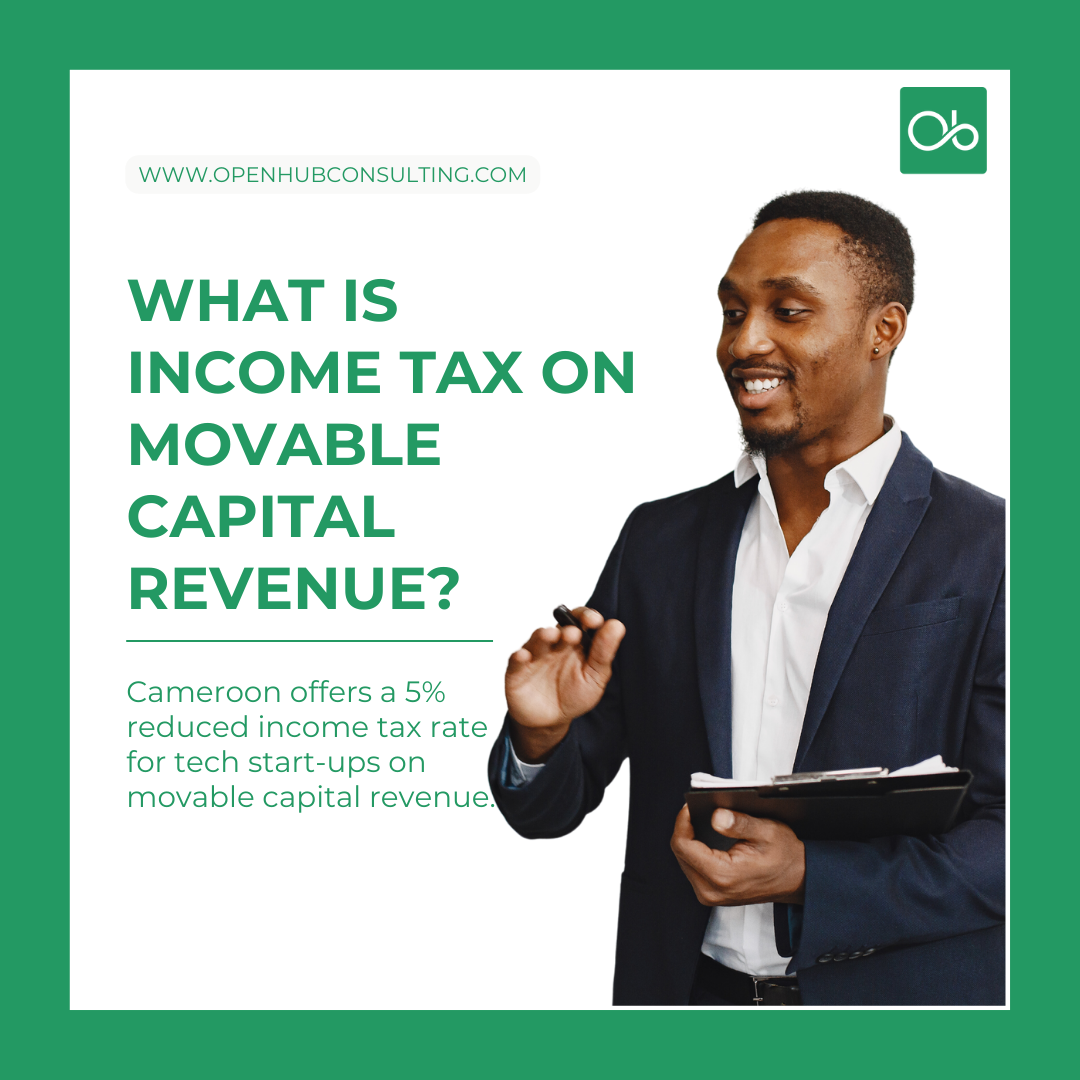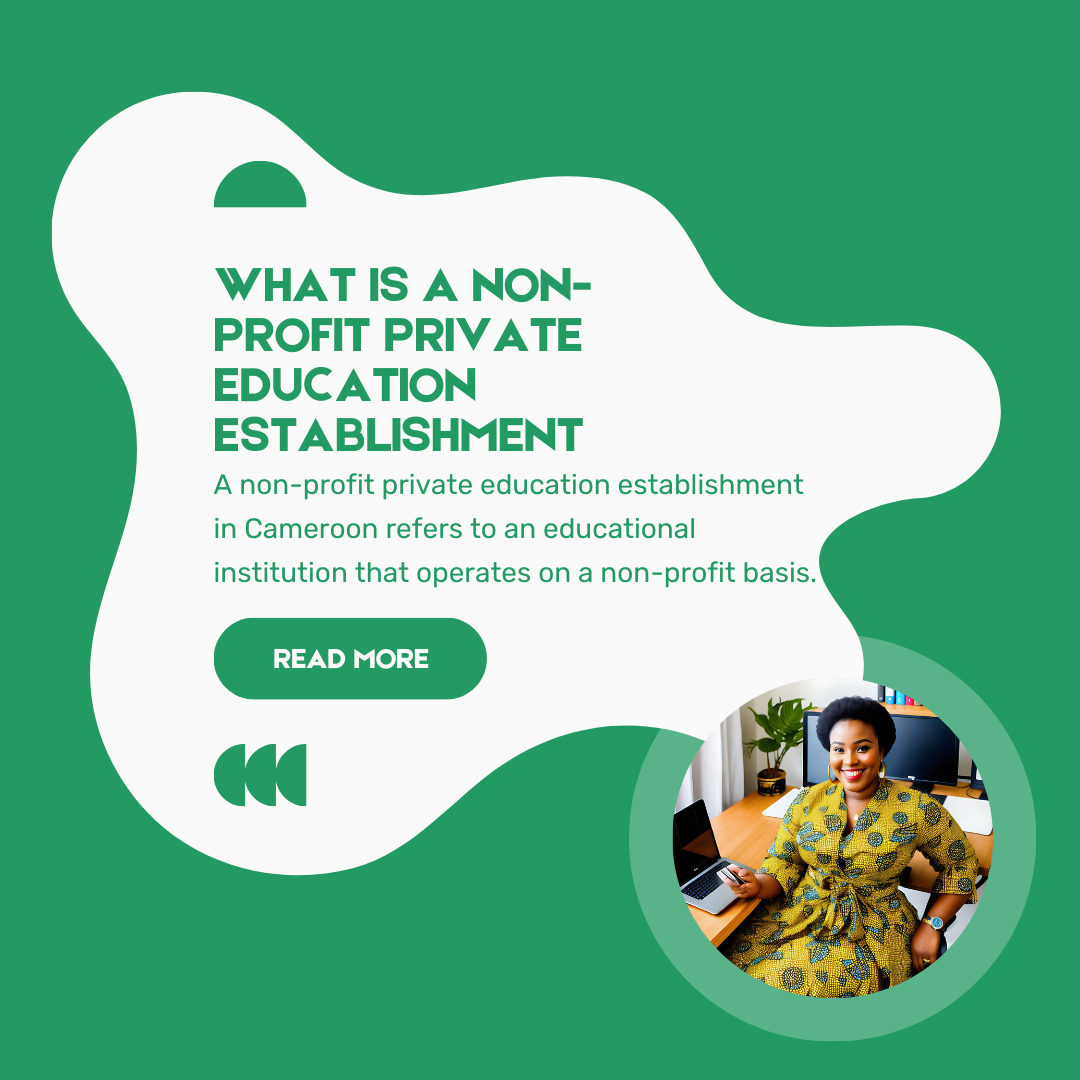Technology start-ups in Cameroon enjoy a reduced 5% tax rate on income from movable capital revenue, dividends, and interest payments, as part of a government initiative designed to encourage entrepreneurship and technology investment. The aim is to stimulate growth in the digital economy. Start-ups and investors are advised to consult tax professionals to fully understand the scope and conditions of these incentives.
Company Incorporation
News
Recent Posts
Tax
Free Online Invoice Generator for Cameroon
Free Online Payroll Generator for Cameroon
Online Cameroon income tax calculator
Incentives for Promoting the Digital Economy: Boosting Start-ups in the Digital Sphere
Cameroon’s General Tax Code offers tax advantages and incentives to ICT start-ups registered in approved management centers to foster innovation and support the digital economy. During the incubation phase, start-ups are tax exempt, giving them financial freedom to focus on growth. Technological innovation is encouraged through a 30% income tax credit on associated expenses. During the operational phase, further benefits continue, such as reduced tax rates, exemptions, and preferential rates on capital gains from sales. After five years, start-ups transition to the regular tax system, maintaining their established foundations.
Understanding Income Tax Credit
Income tax credit, a government incentive, enables taxpayers to lessen their tax liability. For instance, in Cameroon, start-ups engaging in research and innovation can benefit from a tax credit of up to 30% on their expenses, capped at 100 million CFA francs. This incentive encourages technological advancements, job creation, and overall economic growth.
IT Support Technicians Needed – Riding Required!
IT Support Technicians needed in Yaounde and Douala to placed on-site with clients to provide technical support, software installations, and troubleshooting services.
Start Your Online Business Today with MTN NoLimit Internet
With an internet connection, you can launch and run an online venture from anywhere in Cameroon using MTN NoLimit
Open-end investment companies
Open-end investment firms, known as SICAVs (Société d’Investissement à Capital Variable), are financial structures pooling funds from investors for diversified portfolio investments like stocks, bonds, or other instruments. Offering unlimited shares, SICAVs offer liquidity and risk diversification, while being subject to regulatory oversight for investor protection. These companies are tax-exempt in Cameroon.
Mutual investment funds
Mutual investment funds pool capital from numerous investors and offer access to professionally managed, diversified investment portfolios. They have varying objectives like capital appreciation and income generation, detailed in the prospectus. Managed by professionals, mutual funds issue, redeem units as per investor interest and follow robust risk management practices. They’re subjected to regulatory oversight for investor protection and transparency. Interestingly, they are exempted from paying company tax in Cameroon.
Cooperative societies
Cooperative societies are voluntary associations that promote the economic and social well-being of their members by pooling resources and undertaking collective activities. Key features include democratic control, active member benefit, limited return on capital, and emphasis on education and training. These cooperatives operate across various sectors and can increase bargaining power, improve resource access, and promote sustainable practices. Cooperatives’ structure and benefits are subject to local regulations, such as tax exemptions in Cameroon. Assistance is readily available for those interested in forming or participating in cooperatives.
Mutual credit funds
Mutual credit funds are member-owned cooperatives providing financial services such as savings, loans, and more. They differ from traditional banks as they are not-for-profit, prioritizing members’ financial needs over profits. Membership is open to individuals or businesses meeting specific eligibility criteria. These funds promote financial inclusion, local lending, and community development while being regulated by the relevant financial authorities.
Non-profit private education establishment
Non-profit private education establishments are institutions primarily focused on providing quality education rather than making profits. Privately owned by non-profit organizations, religious groups, or community entities, they encompass a variety of institutions from schools to universities. They rely on multiple funding sources including tuition, donations, and government grants. These institutions often offer a more personalized educational experience with greater flexibility in curriculum and teaching methods compared to public schools, despite charging tuition fees.










